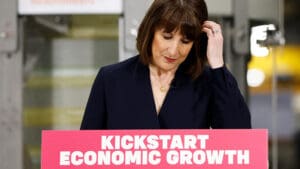NatWest has delivered one of its strongest quarterly performances since the financial crisis, posting a 30.4 per cent surge in pre-tax profits to £2.2 billion for the three months to the end of September — far exceeding City expectations.
The FTSE 100 lender said income rose almost 16 per cent to £4.3 billion, driven by widening deposit margins and a modest calendar boost from one extra trading day in the quarter. Its net interest margin – the key measure of profitability between lending and deposits – increased to 2.37 per cent, up from 2.18 per cent a year earlier.
Shares in the group rose 3 per cent to 563p, their highest level since the taxpayer bailout of 2008, as investors welcomed the upgraded outlook.
Chief executive Paul Thwaite said the performance was “underpinned by healthy levels of customer activity,” adding that the group’s balance sheet remained resilient despite a challenging macroeconomic backdrop.
NatWest now expects full-year income, excluding one-off items, to reach around £16.3 billion, up from its previous guidance of “more than £16 billion”. It also raised its target return on tangible equity to above 18 per cent, up from the earlier 16.5 per cent forecast.
The results underscore how higher-for-longer interest rates have bolstered UK lenders’ earnings. The Bank of England base rate, which peaked at 5.25 per cent between 2023 and 2024, has since eased to 4 per cent — but remains well above historic norms, allowing banks to maintain healthy lending margins.
NatWest’s results follow similarly robust performances across the banking sector. Barclays reported £2.1 billion in pre-tax profits this week, announcing a £500 million share buyback, while Lloyds Banking Group posted £1.2 billion despite taking an £800 million provision related to motor finance mis-selling.
Banks have also benefited from “structural hedging” strategies, using derivatives to manage exposure to interest rate volatility — a key driver of earnings stability in the current climate.
However, bumper profits could bring unwanted attention from the Treasury ahead of the Chancellor’s Autumn Budget on 26 November. With Rachel Reeves seeking to plug a multibillion-pound fiscal gap, analysts warn that banks’ strong returns may make them an attractive target for a new tax measure or windfall levy.
Lenders insist they already face a heavier tax burden than global peers, arguing that further increases could damage the competitiveness of Britain’s financial sector at a time when international institutions are reassessing their UK exposure.

















